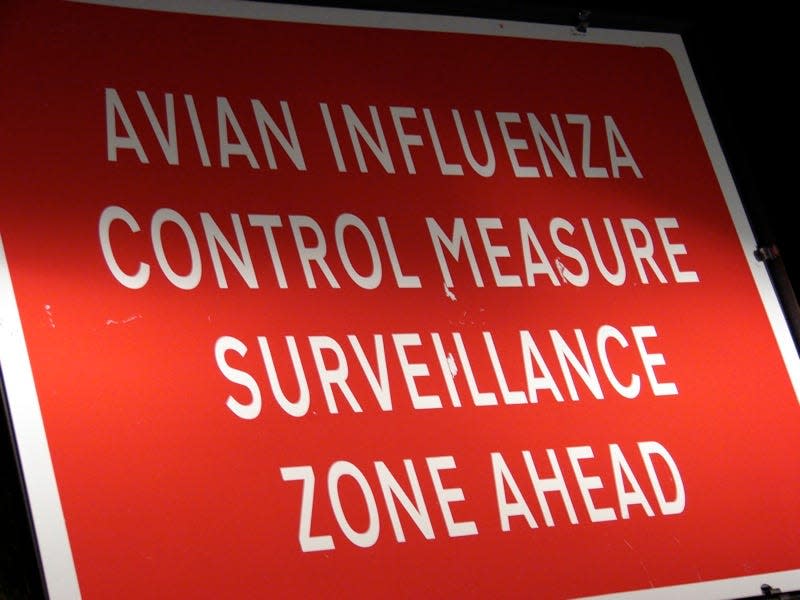First avian flu cases in NJ domestic birds found in Monmouth County
MONMOUTH COUNTY — A strain of avian flu that is responsible for infecting an estimated 13.3 million birds nationwide was discovered within a Monmouth County flock, marking the first confirmed cases within New Jersey domestic birds, state and federal agencies announced Wednesday.
The cases of "highly pathogenic" avian influenza — the virus is particularly deadly to domestic birds — were diagnosed in a non-commercial backyard flock of ducks and chickens, according to the New Jersey Department of Agriculture and the U.S. Animal and Plant Health Inspection Service, a division of the U.S. Department of Agriculture. The agencies did not say in which town the birds were located.
The virus was discovered after the flock's ducks showed symptoms of neurological illness and many died, according to the New Jersey Department of Agriculture. Detection of the virus was confirmed by the New Jersey Animal Health Diagnostic Laboratory as well as the National Veterinary Services Laboratory, according to the state department.
Though often fatal in domestic bird species, the virus does not typically infect humans; however, some bird-to-human transmission has been reported in people who are in close contact with infected birds, according to the Centers for Disease Control.
Two human cases of avian flu have been reported so far this year, according to the CDC. One case was in a worker who was culling infected birds and has since recovered after being isolated and treated with an antiviral drug. Information on the second case had not yet been released by the CDC.
As of March 7, the CDC said the current bird flu outbreak was a "low risk" to human health.
The infected birds in Monmouth County will be killed to prevent the spread of the disease, according to the state agriculture department. The property was also placed in quarantine, according to state officials.

Though this is the first case of avian flu found in New Jersey within a domestic flock, previous cases were discovered in wild birds within the state earlier this year, according to Animal and Plant Health Inspection Service records. Those cases were found in Cape May mallard ducks in February.
Wild birds are capable of being infected, but showing few or no symptoms of virus, according to the agency. They can also spread the virus to domestic flocks while migrating.
Avian flu spreads through bird feces or body fluids, such as those from the eyes, mouth or nose, according to state agriculture department. The virus can also linger on surfaces like vehicles, equipment and shoes, according to officials.

Birds with highly pathogenic avian influenza may die suddenly, stop eating or drinking, cough, sneeze, have nasal discharge, eye swelling, lethargy, open mouth breathing, a dark comb or wattles, red shanks or feet, or reduced egg laying, according to the state agriculture department.
Bird owners across New Jersey are encouraged to prevent domestic birds from having any contact with wild birds, avoid other poultry, keep clothing and boots used to tend flocks separate from other clothing and wear boot covers when possible. Bird owners are also advised to keep visitors to the birds away, and avoid or sanitize any shared farm equipment.
'What's a mother to do?': Monmouth, Ocean food pantries squeezed by baby formula shortage
Public safety: Buffalo shooter posed no threat to Lakewood and Toms River, Ocean County prosecutor says
Amanda Oglesby is an Ocean County native who covers Brick, Barnegat and Lacey townships as well as the environment. She has worked for the Press for more than a decade. Reach her at @OglesbyAPP, aoglesby@gannettnj.com or 732-557-5701.
This article originally appeared on Asbury Park Press: Avian flu discovered in Monmouth County NJ through duck deaths

